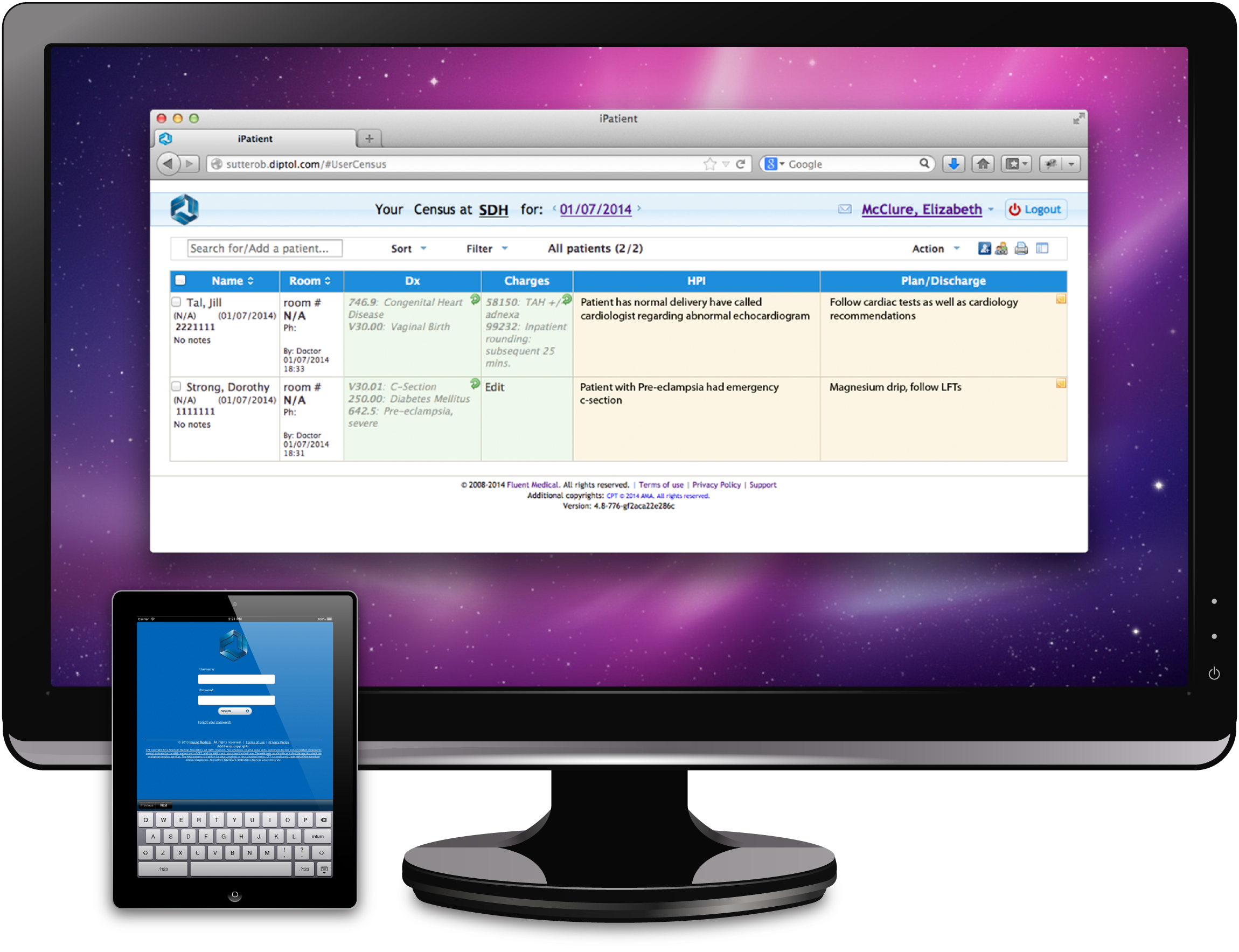Fluent Medical makes intuitive software tools for healthcare providers. Not only does the company focus on software that helps to improve patient care and safety, physician productivity and financial returns for practices and hospitals – it was co-founded by a pulmonologist – Dr. Richard Kim – who certainly knows what doctors, hospitals and patients need. Their iPatient platform is just what the health care community needs – and just what the doctor ordered, or rather, created: software that can be customized, deployed and upgraded – stat!
Tell us about the service.
Fluent Medical’s iPatient platform encompasses a suite of secure tools designed to address healthcare providers’ biggest communication pain points. Our most widely used tools include iPatient Charge Capture, which enables doctors to record patient diagnoses and charges at the point of care, and iPatient SignOut, which improves the speed and safety of the millions of patient handoffs between healthcare providers that occur every day. All the products we develop fit Fluent Medical’s mission: enhancing healthcare providers’ ability to deliver quality care by improving the efficiency and accuracy of reporting and sharing patient data.
How is it different?
I created iPatient because of my frustrations with the old pen and paper workflows and the digital tools that had been developed to replace them. I wanted to create something that would help me do my work in pulmonary critical care, but realized that my preferred documentation workflow would not necessarily fit my colleagues’ needs. Hospitals are big organizations that are resistant to change. Even the change from paper to digital record-keeping is still ongoing. So in order for our products to be adopted quickly, we customize every installation to fit an organization’s unique workflow, and because iPatient was engineered for this flexibility, it only takes a few days or weeks to deploy a solution. iPatient tools are 100% customizable and engineered by our developers to be orders of magnitude more flexible than any of our competitors’ software.
What market are you attacking and how big is it?
Our potential market is all healthcare providers in private practice and in hospitals, residency programs and other institutions. Conservatively speaking, there is a $450 million dollar market for iPatient.
What is the business model?

Co-Founder
Fluent Medical
Our model is subscription based, and because our system is deployed quickly to hospitals and other institutions, and requires minimal IT support, most of our resources can be put toward creating new products or iterations of current products. We customize the tools for each new client, so we are always learning, and refining our software and best practices. In the past, new clients have given us insight into different workflows along with feedback that led to new products, which the next set of clients then refine with their customizations. With our flexible architecture and deployment process, our continued relevance is assured.
Why is your team the right one to attack this crowded space?
This is the golden age of healthcare IT. Between the government mandates encouraging the use of information technology for healthcare (the Meaningful Use mandate), an initiative in the US to catch up to worldwide diagnosis reporting standards (ICD-10), and the explosion of mobile devices, now is a great time to be involved in healthcare IT. The space is crowded in some areas, but not in others. Various specialties, like anesthesiology, surgery, OB/GYN, and nursing, have been underserved by the companies bringing communications solutions to the market today. iPatient’s flexibility means that we can customize more quickly than most of our competitors, to serve these markets.
Our team is a mixture of professionals with healthcare and software expertise. We hire exceptional programmers who are dedicated to the vision of flexibility and top notch user-friendliness. Some of our competitors employ doctors to vet solutions, but none have tackled the problem of fitting one platform into an infinity of specialties and user requirements. Many solutions in this space are enterprise software which requires years to roll out. iPatient, as a cloud-based SaaS solution, decreases the IT burden on institutions and practices that are already overwhelmed.
What are the milestones that you plan to achieve within 6 months?
In the next six months we plan to grow our client base by at least 50%. We also plan to increase the number of partnerships we have with other players in the healthcare IT space. iPatient integrates well with enterprise-level, full-service charting software. Finally, we are launching new flavors of our current products to address the needs of an expanded roster of healthcare specialties.
Why did you launch in New York?
We launched in New York because Mark Gorton, Fluent Medical’s other founder, and I are from the area. His financial services company, with its technology experts, infrastructure and business support, which Fluent Medical shares, are all based in New York City. There is no other place we would rather be. The creative energy and the density of health care institutions in New York City make it the ideal place for Fluent Medical.






